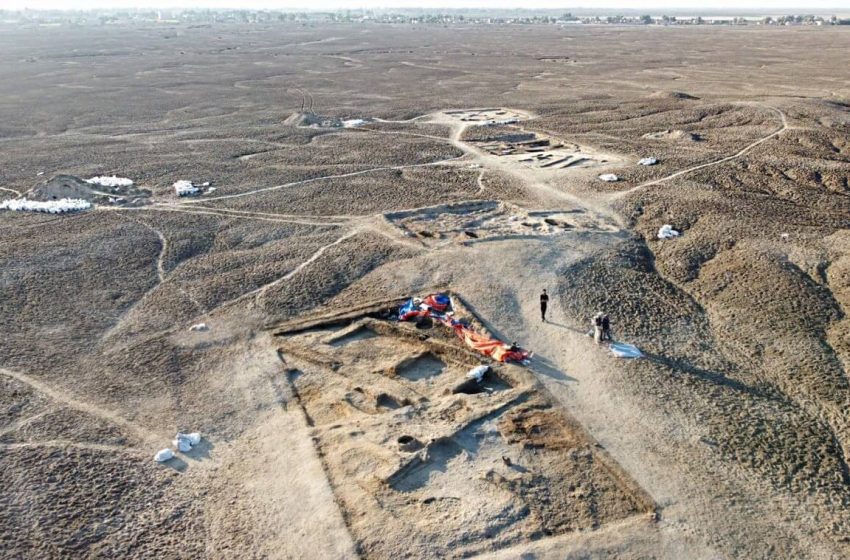Archeologists discover restaurant in Iraq dating back thousands of years

An Ancient public place where food and beverages are served to people at the Lagash archaeological site in Dhi Qar governorate, Iraq. Photo: Lagash Archaeology Project/CNN
Baghdad (IraqiNews.com) – The Iraqi State Board of Antiquities and Heritage (SBAH) announced that an American excavation mission at the Lagash archaeological site in Dhi Qar governorate in southern Iraq discovered an ancient public place where food and beverages are served to people, which experts considered to be more like a restaurant dating back thousands of years, similar to modern restaurants.
The announcement received wide reactions inside and outside Iraq, especially among those interested in antiquities and ancient human civilizations, who considered the discovery as new evidence of the extent of the progress of Mesopotamian civilizations.
The discovery reflected the level of the development of social organization, technical and engineering architecture, compared to those ancient times.
Iraqi voices called on local excavation missions to take the initiative, and to intensify, in coordination with relevant international institutions and missions, their efforts to uncover more of the treasures of Mesopotamia, in terms of archaeological and heritage sites and monuments that reflect its cultural depth.
SBAH media director, Hakim Al-Shammari, said that the mission of the University of Pennsylvania, during its excavations at the Lagash site, discovered an archaeological public place used to prepare food and drinks to be served to people on benches made of mud, a discovery that might be one of the most important discoveries of this mission during its four seasons of work in Iraq.
The mission also discovered a group of pottery utensils, six ovens, many clay dolls, small passages between the buildings that were uncovered, stoves for cooking, utensils for storing and preserving food and beverages, large jars to keep the water cold, grinding tools similar to millstones, bones, fish scales and leftovers, Al-Shammari explained.
These discoveries are another sign of the extent to which Iraq is rich in antiquities and monuments of ancient civilization, which confirms the fact that Mesopotamia has always been the cradle of the greatest civilizations, from the Sumerian, Babylonian, Assyrian and Akkadian to the Islamic era.
This discovery is part of the excavations ongoing since 2019 as part of a joint project between the University of Pennsylvania Museum of Archaeology and Anthropology (Penn Museum), the University of Cambridge and the SBAH, where modern technologies such as drone photography and genetic analysis are used.
Dhi Qar is one of the richest Iraqi governorate with ancient archaeological sites. It includes more than 1,200 sites distributed in various cities and places in the governorate, such as Ur, Lagash and Larsa.
Many of these sites and monuments are still not fully discovered.
